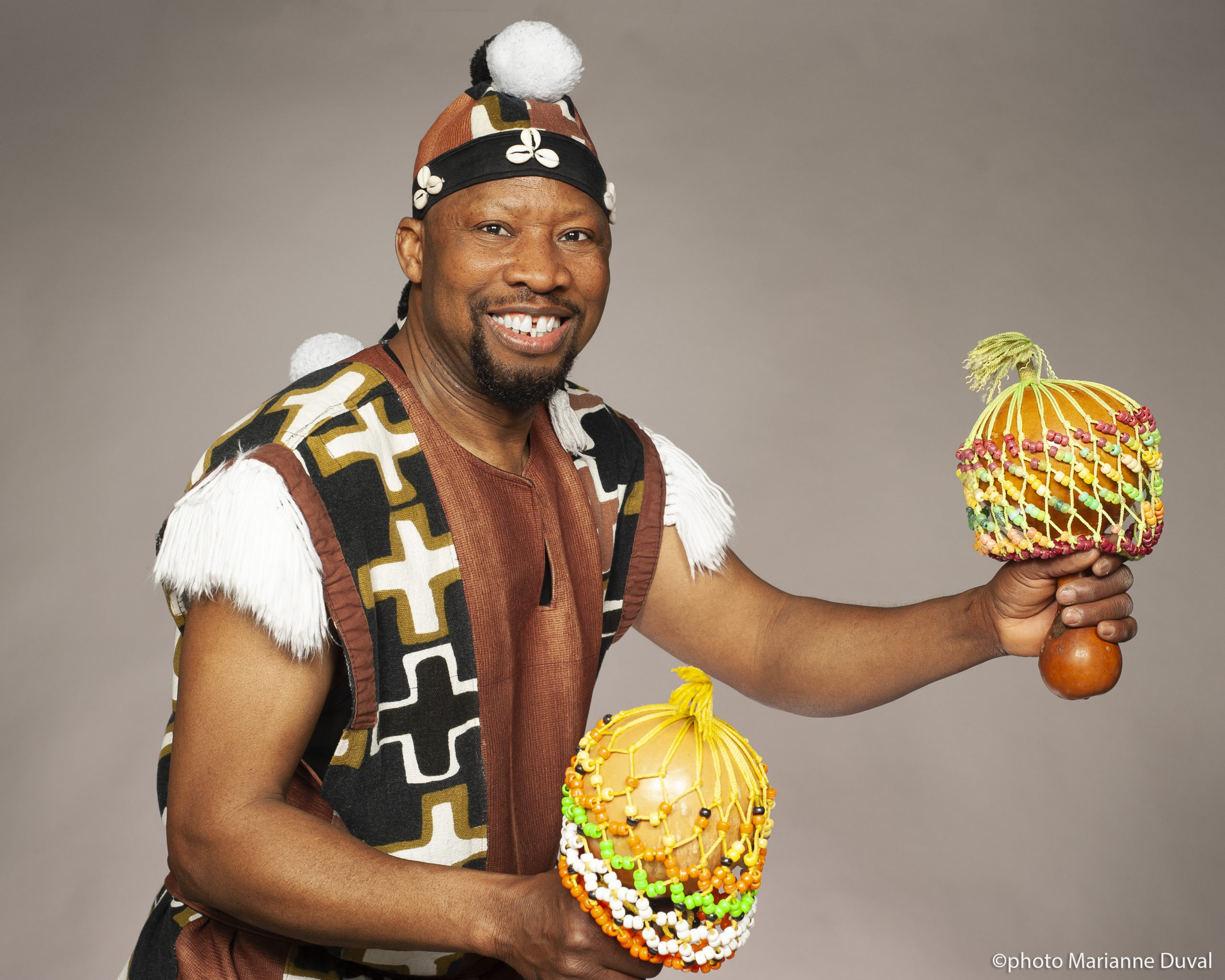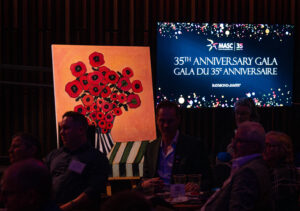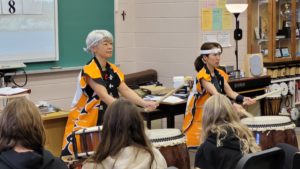Interview: Through music and dance, Fana Soro wants to share the beauty of traditional African culture
By Jessica Ruano | December 3, 2021

This interview was originally published on Apt613.ca
Fana Soro hails from the Senoufo tribe in northern Côte d’Ivoire and spent nine years as a member of the prestigious Ballet National de Côte d’Ivoire. He also toured with the celebrated West African group Super Djembé Kan. Fana later moved to Canada and formed Masabo, a performance group specializing in traditional West African music, dance, and story.
Fana Soro performs for a school audience. Photo provided by MASC.
Yamo! Yamo! I’ve seen photos of children in your workshops. They are always beaming! What is it about drumming that makes people so happy?
I believe that the sound produced by the Djembé drum is very unique. The Djembé only produces three tones, so a lot of the creativity falls on the artist. This means drumming is tailored to speak to the emotions of the musician. If you are feeling happy one day, the sound of the drum will be happy. If you are angry, the drum will be angry too. The Djembé is a drum that talks with the musician and energizes everyone who hears its beat. I believe that is why it makes people happy. The Djembé is used to communicate how people feel; that is one of the reasons why it is so commonly used for big ceremonies that bring the community together. It speaks to everyone!
You are a hereditary master of the balafon, West Africa’s big wooden xylophone. What responsibility do you feel you have to share your traditions and your music with the rest of the world?
I have a responsibility to share my music and traditions because I believe that sharing knowledge and culture is how we grow the next generation. The more we share among each other, the more connected we grow. It takes a whole village to raise a child and I am responsible for doing my part! I also feel a need to share my culture, because not many people in North America are exposed to the beauty of traditional African culture. We often see negative images and stereotypes of Africa in the media. My goal is to help change those images and show what Africa truly looks like, sounds like, and feels like.
Kids at a workshop discovering the joy of the djembé. Photo provided by MASC.
The West African dances you teach are so high-energy. How does your body and your soul feel when you are teaching or performing these dances?
Free is the most accurate word to describe the dances I teach. When I am performing, I feel the freedom to express myself, the freedom to connect with others, and also the freedom of my soul. The high-energy dances are also a way of relieving my mind and soul of stress, and I teach others in the hope that they can feel the same way. Also, many of my traditional dances are attached to stories told in the village. Stories of joy, triumph, community, and growth. These are emotions that can be seen when I am teaching and dancing because I feel like I am not just moving but telling stories, too.
As a member of MASC, what do you gain through offering your workshops in schools and in the community?
What I gain through MASC is a better understanding of the youth and the educational system. I get to meet principals, teachers, and students through my performances and workshops. They remind me that every school is unique, and I can learn from every performance that I have with them.
We often see negative images and stereotypes of Africa in the media. My goal is to help change those images and show what Africa truly looks like, sounds like, and feels like.
I also get to connect with other artists, whether that’s performing on the same stages or reuniting at MASC events. MASC artists give me insight and a different perspective on how they share their passions through education.
Kids at a Fana Soro workshop trying out West African drumming. Photo provided by MASC.
Why do you think it’s important for our local community to have access to professional artists?
I believe it’s important because it promotes diversity among our local community. We get to share our experiences, our beliefs, and our cultures through professional art! We are also exposed to art forms that we may not see on our everyday mainstream media platforms. Spending time in the local community also reinforces future connections: If you want to reach out and connect with a professional artist, you know how to find them and invite them back to your community. You never know, some professional artists may even be our neighbours!
Latest News
View All Articles



